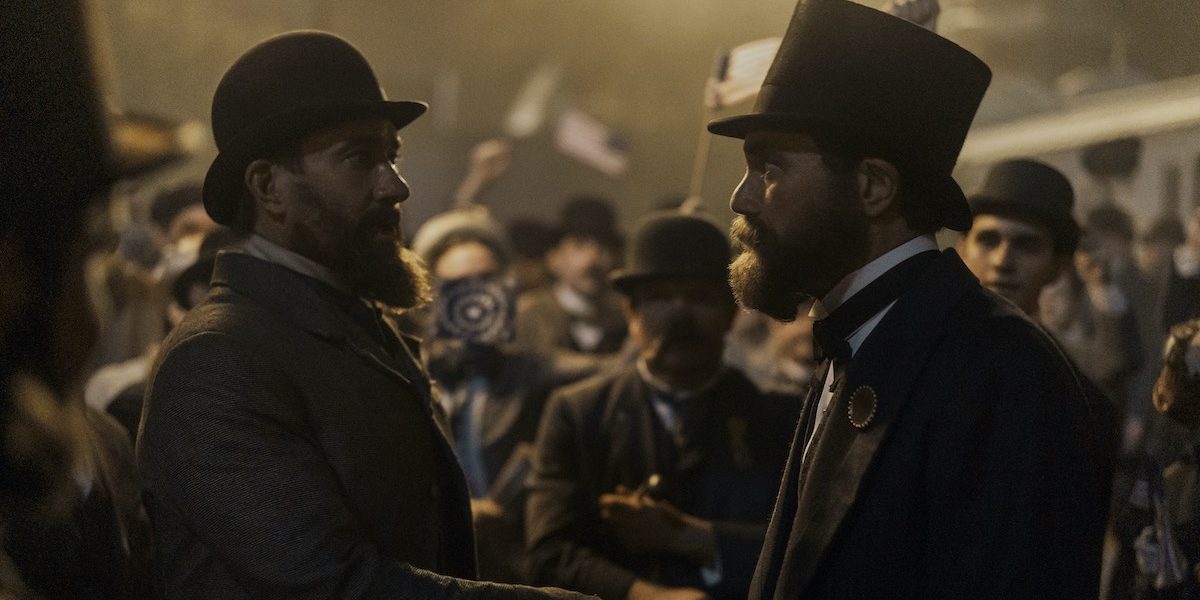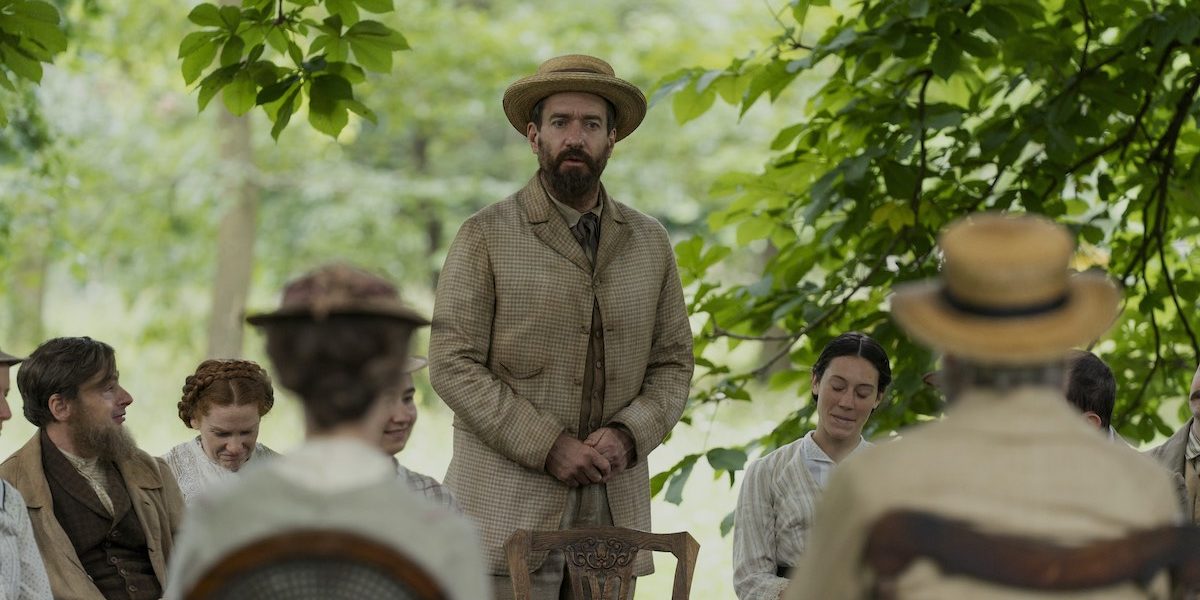Over the course of four episodes, Netflix’s ‘Death by Lightning’ sheds light on the circumstances surrounding the presidency of James Garfield, followed by his assassination at the hands of Charles Guiteau. As we learn both sides of the story, where Garfield experiences an incredible rise in his political career while Guiteau tries to build one for himself, a question recurs throughout the series: why did Guiteau shoot President Garfield? With no personal or political connection whatsoever, the duo couldn’t have been any more removed from each other, and the lack of a proper motive makes Guiteau’s actions even more intriguing. SPOILERS AHEAD.
Charles Guiteau’s False Sense of Self-Importance was a Major Influence on His Actions
Before Charles Guiteau shoots James Garfield in ‘Death by Lightning,’ the audience is familiarised with his past. We meet him in a jail cell, where he tries to convince a group of judges that he is not scum, but a credit to society, despite the lies and frauds he has indulged in his path. He is revealed to have repeatedly stolen from his brother-in-law, and despite the lack of money and resources, he always seems to have huge plans with which he aims to change the world. The more the world tries to show him the mirror, the more he turns his eyes away from his reflection and refuses to see himself as anything but a savior who has been ordained by God. This feeling becomes more prominent in him as he follows Garfield’s trajectory to becoming the President, and eventually, that’s what leads him to take the drastic step.

While the Netflix series dramatizes several aspects, it presents Guiteau’s journey in a fairly realistic light. As depicted in the show, Guiteau really did become obsessed with Garfield. He was known to have repeatedly hounded the party members and other people working on the campaign, expressing his intense desire to become a part of the campaign. Though there is no way to know what led to his obsession, he did try to contribute to Garfield’s success. After being rebuffed several times, he was given a chance to give a speech in support of Garfield, and when he won, Guiteau believed that his speech had played a pivotal role in shifting public opinion in his favor. Now, he wanted his reward, so, once again, he hounded anyone he thought could give him a job, most preferably a consulate seat in Paris. He even managed to find Secretary of State James Blaine and addressed his desire to him, but received nothing but dismissal on all ends.
All this rejection, which Guiteau thought was entirely uncalled for and undeserving due to his role in the President’s campaign, led him to believe that power had corrupted President Garfield, and he needed to be put in his place. Reportedly, in his letter of admission, he wrote: “In the president’s madness, he has wrecked the once Grand Old Republican Party; and for this, he dies.” Guiteau was convinced that this act was necessary to save the country and that God himself had ordained him with this responsibility. It is believed that the assassin may have had schizophrenia or any other kind of mental illness, which fed into his delusions of grandeur and likely led him to hear voices that he interpreted as God talking directly to him. The true nature and extent of his illness remain a matter of speculation, but given Guiteau’s behaviour and his actions, it isn’t too far-fetched to believe that his heightened sense of self-importance led him to assassinate the very President he’d so passionately supported.
Read More: Was Charles Guiteau’s Brain Really Preserved? Where is It Now?


You must be logged in to post a comment.